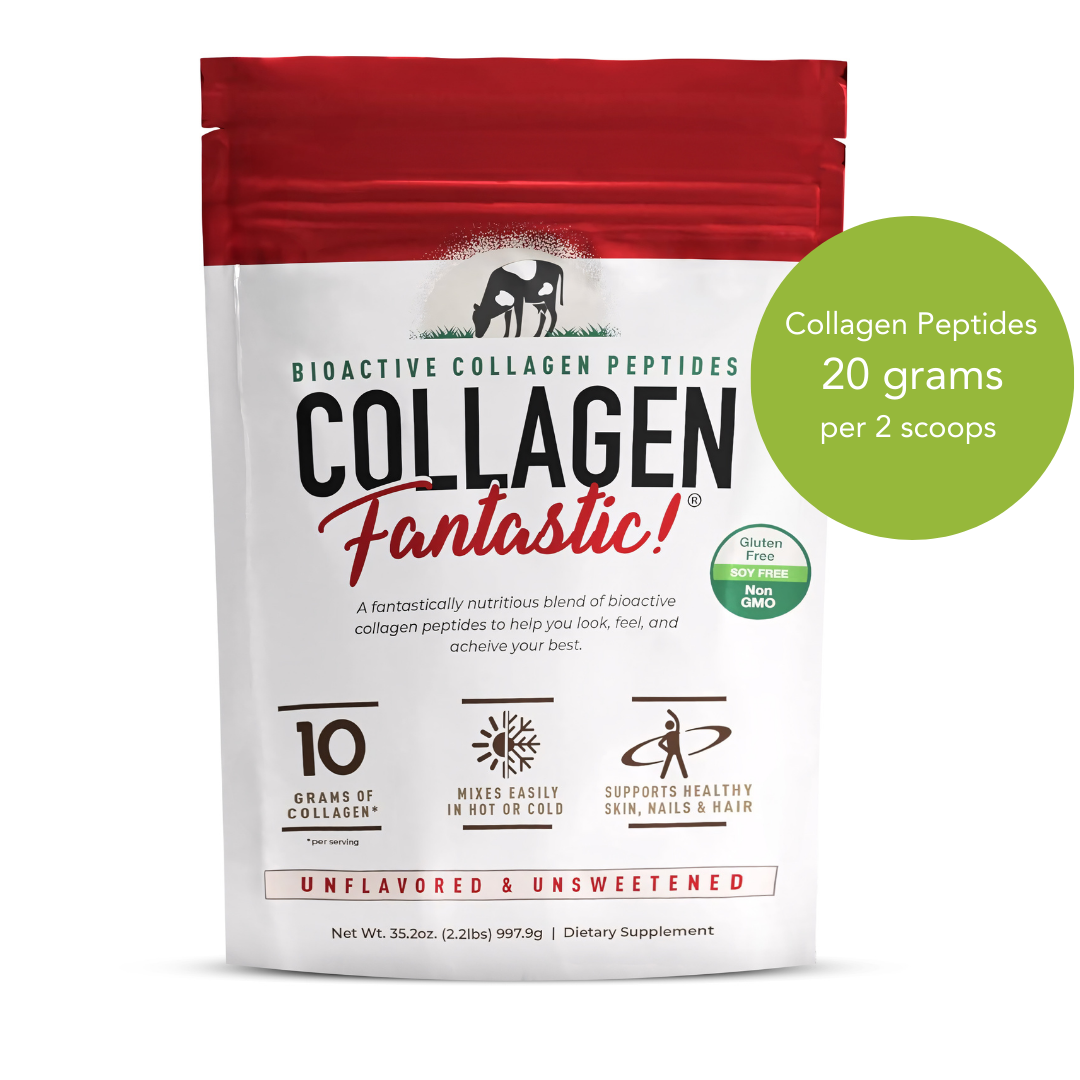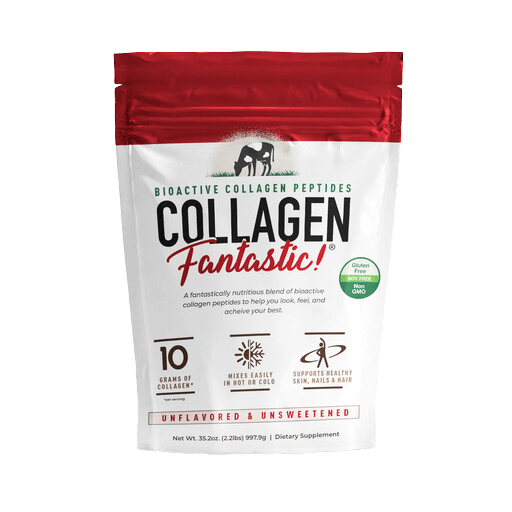8 Common Myths About Protein and Protein Powder
Protein intake is super important. It’s not only essential for burning unwanted body fat and building muscle but for everyday bodily function. The thing is there’s a ton of misinformation out there when it comes to protein.
For example, have you heard of any of these?
- Protein powder will make you fat
- It’s only for bodybuilders or people who workout a lot
- Eating too much protein causes kidney disease
Well, this post is dedicated to tackling some of the most common myths about protein and protein powder (including the ones listed above)! And by the time you’re done reading this post, you’ll have a better understanding of the crucial role protein plays in our lives.
So without any further ado, let’s dive in.
Firstly. What are the health benefits of Protein and Protein Powder?
Both complete protein and protein powder offer various health benefits, but it's important to acknowledge their differences and consider who might benefit most from each. Here's a breakdown:
Protein Health Benefits
Essential building block: Protein from a variety of food sources such as meat, fish and eggs etc which contains 9 essential amino acids which play a crucial role in building and repairing muscle, bones, skin, and other muscle tissues.
Supports growth and development: Particularly important for children, teens, and pregnant women during growth spurts.
Promotes satiety: Feeling fuller for longer can help with weight management and reduce cravings.
Boosts metabolism: Processing protein requires more energy than other nutrients, potentially increasing your metabolic rate.
Supports immune function: Antibodies, essential for fighting off infection, are made from protein.
Protein Powder Health Benefits
Convenient source of extra protein: Can be easily integrated into smoothies, shakes, or baking for a quick protein boost.
May aid muscle building: When combined with resistance training, protein powder can support building muscle mass, muscle growth and recovery for athletes or fitness enthusiasts.
Dietary supplement: Can help individuals with specific dietary needs or restrictions increase their daily protein intake efficiently.
Myth #1: Whey Protein Powder Means Weight Gain
This one starts off our myths about protein list. A lot of people on the fence about protein supplements have the following question: Will consuming calories from protein powder make me fat?
The short answer to that is no, not if you don’t want it to! Let us explain. Putting on weight comes down to calories in vs. calories out. So, if you consume more than your body burns, then you’ll gain weight. But protein powder in itself doesn’t have some magical property that makes you gain more weight than other foods.
In fact, protein reduces hunger hormones in your body and increases satiety hormones that fill you up, which can help prevent overeating. Not only that but research shows a high-protein diet can burn as much as 80 extra calories per day than a standard balanced diet, meaning upping your protein intake increases your metabolism. This is because protein has a high thermic effect (your body has to work hard to digest it, which burns calories).
Research published in the Journal of the American College of Nutrition found that consuming whey protein in place of other foods (while following a strength training program) resulted in an average weight loss of 8 pounds across the study’s participants.
Myth #2: Protein Powder Only Benefits Bodybuilders or Those Super Into Fitness
Within the fitness industry, where a lot of people claim to be "fitness experts", one of the biggest protein myths (and really, just protein in general) is that only bodybuilders or people who workout a lot need to worry about protein. But this couldn’t be further from the truth.
Yes, protein powder is a great muscle-building food. But workout regimes aside, protein plays a prime role in helping your body function at peak capacity. It’s vital for cell repair and development, which is at the core of your very being. So not getting enough means sacrificing your health. At the end of the day, whether you workout a ton or not at all, protein is necessary for keeping your body healthy and operating the way it should.
Myth #3: Protein Powder Makes Women Bulky
Any list of protein powder myths would be incomplete if we neglected to include this one. Ladies, protein powder WILL NOT make you bulky. We repeat, protein powder WILL NOT make you bulky.
Let’s talk about the science behind why. First off, physiologically, women have less testosterone and more estrogen than men, which makes it really difficult to bulk up. So if you’re envisioning becoming the She-Hulk from taking protein powder, think again! It’s extremely hard to become bulky as a woman.
Second, protein (along with a solid strength muscle training plan) is key to building muscle and getting that toned, athletic physique you’re after and hitting your fitness goals. Having muscle increases your metabolic rate, which helps you burn more fat and slim down. Also, muscle gain is what gives your body definition and shape.

Myth #4: A High-Protein Diet Can Lead to Kidney Disease
There’s this myth out there that eating a lot of protein will cause damage to your usual healthy kidneys. Consuming a ton of protein while having pre-existing issues with your kidneys could make things worse. But research shows that eating protein won’t start any kidney damage. Actually, the opposite is true. Research shows that eating protein can actually improve kidney function.
Myth #5: A High-Protein Diet Damages Your Bones
What’s the impact protein consumption has on your bones? According to this specific myth about protein, the acid buildup that results from consuming protein drains your body’s calcium supply (which is a key component for strong bones). On top of that, this myth about protein says it causes osteoporosis (i.e. brittle and weak bones).
Research out there shuts this claim irrevocably. In fact, consuming protein has many benefits for your bone health and has been shown to reduce the likelihood of osteoporosis and bone fractures.
Myth #6: Cooking Protein Powder Zaps the Protein From It
This protein powder myth says that cooking protein (i.e. using it in recipes) lowers the protein content. But look at it like this: Cooking with protein powder is like cooking with eggs.
Eggs over easy (i.e. barely cooked) have the same amount of protein as scrambled eggs, even though one is technically more done or cooked than the other. The same goes for protein powder when you include it in recipes. Whether you bake protein powder in a muffin or add it to show water for a quick protein shake, you’ll get the same amount of protein.
Check out some of these delicious recipes using various flavors of our % grass-fed Whey
Fantastic protein powder:
- Easy 3-Ingredient Protein Pancakes
- Quick 5-Minute Protein Oatmeal
- Perfect Protein Cookies (great in school lunches for kids!)
- Health & Tasty “Snickers” Protein Smoothie
Myth # 7: Your Body Can Only Digest So Much Protein
You may have heard the protein myth that the max amount of protein you can digest at one time is somewhere between 30-40 grams per day. And that anything above that doesn’t get utilized will cause you digestive discomfort. So where does the rest of the protein go? Does it just poof and disappear into thin air?
The reality is that ALL protein gets digested, no matter how much you eat at one time. But obviously, eating more protein will take longer to digest and for your body to use. Take comfort in knowing that all the protein you eat will be put to good use by your body eventually.
Myth #8: You Don’t Need Protein if You Train for Endurance Sports
It’s true, being an endurance athlete means your diet is going to be pretty heavy in carbs to replenish depleted glycogen stores and give you energy for your super-demanding workouts. But to say you don’t need protein just because you’re an endurance athlete is a big mistake.
As we discussed earlier, protein is an essential macronutrient necessary at even the cellular level. It’s also super important for recovery for recovery in between workouts. So even if you’re not looking to build muscle or do anything like that, getting enough protein is still extremely important.
Protein Myths Wrap Up
No, protein powder won’t make you fat. It isn’t only for serious bodybuilders and it won’t cause kidney disease. These are just a few of some of the myths about protein we’ve gone over.
To summarize, here’s what you should take away from this article about protein and protein powder:
- Whey protein powder doesn’t mean you’re going to gain weight. In fact, protein is the most satiating macronutrient, so eating more of it (including protein shakes) can keep you fuller for longer and help you eat less.
- Protein powder isn’t just for bodybuilders. Protein is a nutrient that’s key to overall health.
- Ladies, protein powder won’t make you bulky. But it can help you put on muscle, which increases your metabolism and helps you burn more calories and trim excess body fat.
- Unless you have pre-existing kidney issues, you absolutely will not develop kidney disease from consuming a protein-rich diet.
- Protein doesn’t damage your bones either. It helps strengthen your bones and guard against osteoporosis.
- Cooking protein powder doesn’t take away its protein content. The same amount of protein powder you poured into a delicious recipe will be the same amount your recipe has once it’s cooked.
- There’s no limit on how much protein your body can digest. It doesn’t matter how much protein you consume in one sitting, your body will eventually digest it all and put it to good use.
- Are you an endurance athlete or someone who trains for endurance sports? Don’t believe anyone who tells you protein intake isn’t important for you. Protein is essential and excellent source for helping you recover in between demanding workout sessions.
Interested in trying a protein powder supplement? Our protein powder comes from 100% grass-fed dairy cows, so you know you’re getting the highest quality protein out there.
Whey Fantastic protein powder comes in three delicious flavors—chocolate, vanilla, or strawberry (you can also get it unflavored if you like). With a whopping 25 grams of protein per serving, Whey Fantastic makes it easy to meet your protein goals.
Our ‘Whey Fantastic’ Whey Protein Powders are 100% free from artificial ingredients, non-GMO, Soy and Gluten Free.
Whether you’re a serious gym-goer or someone who just wants to give their health a boost, remember, protein is the key!


Shop Whey Fantastic Now
About the Author: Chad Richardson is a freelance copywriter from Cincinnati, OH who’s passionate about creating content to help people enjoy healthier lives. When he's not behind his computer, you can find Chad at the gym, in the kitchen trying out new recipes, or scrolling through Netflix for a new binge-worthy show.
References:
https://pubmed.ncbi.nlm.nih.gov/33247306/
https://pubmed.ncbi.nlm.nih.gov/24724774/
https://www.ncbi.nlm.nih.gov/pmc/articles/PMC2129142/
https://www.ncbi.nlm.nih.gov/pmc/articles/PMC2129142/











